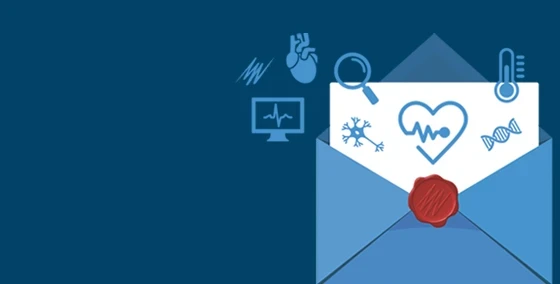Qian, L., Huang, Y., Spencer, C. I., Foley, A., Vedantham, V., Liu, L., Conway, S. J., et al. (2012). In vivo reprogramming of murine cardiac fibroblasts into induced cardiomyocytes. Nature, 485:593-596 Details
Customer study highlights
Heart failure reduces blood flow to the body, including the heart itself and – if left untreated – can result in cardiac arrest and death, representing almost half of all non-communicable disease mortality worldwide. In ischemic heart disease, a major challenge is finding ways to replace damaged cardiac muscle cells (myocytes).
In the field of regenerative medicine, one of the newest approaches for potentially treating cardiac ischemia is viral-mediated ‘reprogramming’ of the heart’s support cells – fibroblasts – into cardiac myocytes. Results from this recent study (Qian et al, 2012) show promising early findings.
A coronary ligation model of myocardial infarction was used in mice to test whether retroviral delivery of transcription factors could reprogram fibroblasts to regenerate into functional cardiac myocytes. Four weeks after ligation and delivery of the retrovirus, genetic lineage tracing showed infiltration of myocyte-like cells into the infarct border zone; these cells were confirmed to be ‘descendants’ of cardiac fibroblasts.
Whole-cell patch clamping revealed that the myocyte-like cells were electrically-excitable and 50% exhibited myocyte-like action-potentials. Fluorescence imaging showed that 90% of the induced myocytes also expressed Ca2+-dependent adhesion molecules and the major cardiac gap junction protein, connexin 43, which were shown to be functional, permitting electrical coupling. In vivo ECG analysis using PowerLab and LabChart software suggested improved cardiac function in mice treated with the retrovirus.
This study represents an important step toward regenerative retroviral therapy for heart failure. By providing an alternative to stem cell technology, it may face fewer obstacles to clinical translation.
Myocyte Isolation Equipment
See here for more information about our Myocyte Isolation solutions.
